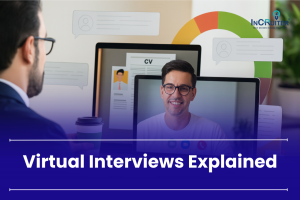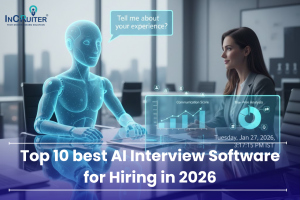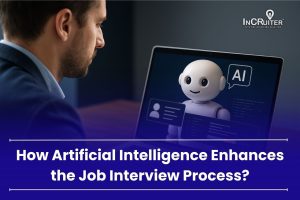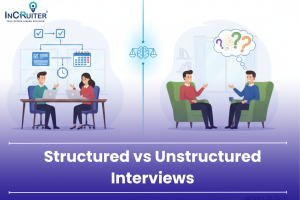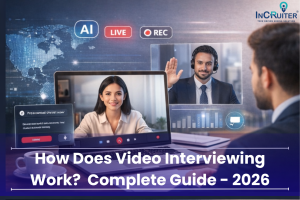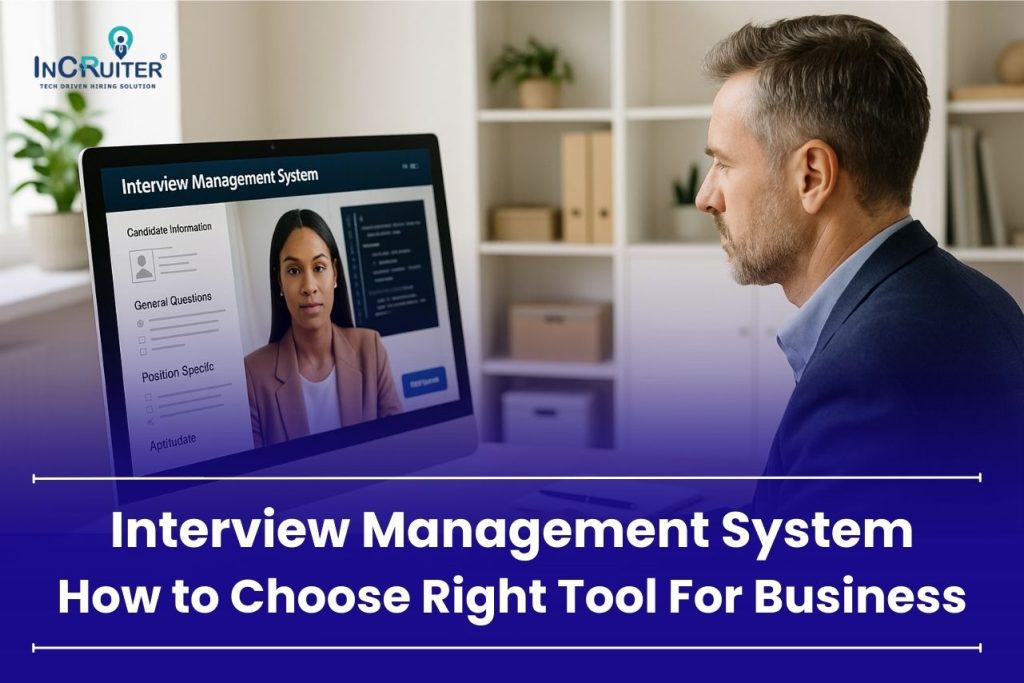
Struggling to manage interviews without endless follow-ups, delays, and miscommunication? You are not alone. Many growing businesses face this challenge when juggling multiple roles, panelists, and candidate expectations. The process gets even more chaotic when your team relies on scattered tools or manual coordination. That is where an Interview Management System becomes your operational backbone.
In this blog, we explore how to choose the right tool and which platforms can simplify your hiring process.
What is an Interview Management System?
An Interview Management System (IMS) is a recruitment software solution that helps companies manage the entire interview process in a structured and efficient way. This platform supports automated interview scheduling, timely coordination with panel members, sending reminders, and collecting feedback from a single place. This system brings structure, saves time, and improves the overall experience for both candidates and hiring teams.
Key Features to Consider While Buying Interview Management Software
Selecting the right interview management solution is a strategic move that goes beyond automating tasks like application management. It requires investing in a platform that aligns with your company’s hiring goals, simplifies operational workflows, enables collaboration, enhances the candidate experience, and provides actionable insights to improve hiring outcomes.
1. Interview Scheduling Flexibility
Interview scheduling is often one of the most time-consuming parts of recruitment, such as panelist calendar integration. A good platform should streamline coordination between candidates and interviewers and remove unnecessary back-and-forth. This is especially critical in distributed or high-volume hiring environments.
- Automated Interview Scheduling
The system should identify available slots from the panelist calendar integration and allocate time slots accordingly. Interview invites and notifications should be sent automatically, minimizing manual work and avoiding scheduling errors.
- Calendar Integration
Seamless Google Calendar, Microsoft Outlook, or enterprise calendar integration allows recruiters to view and manage interviewer availability in real time. This prevents double bookings and reduces the need for follow-ups.
- Time Zone Management
For businesses hiring across regions, the tool should automatically align time slots based on each participant’s local time. This helps prevent interview clashes and ensures smoother global coordination.
- Automated Reminders
The system should send timely automated reminders to candidates and panelists through email, text, or voice calls. This not only improves attendance but also ensures both parties are prepared ahead of time.
2. User-Friendly Interface
An intuitive interface is essential for encouraging adoption across recruitment teams and interview panels. A system that is easy to use reduces dependency on training and makes onboarding smoother for everyone involved.
- Intuitive Layout
The interface should guide users through each step, whether they are scheduling an interview, submitting feedback, or reviewing candidate history. Every feature should be easy to access and logically placed.
- Custom Dashboards
Dashboards should be customizable to suit the needs of recruiters, hiring managers, and leadership teams. Each user should be able to track their priorities, monitor interview stages, and access relevant data quickly.
- Low Learning Curve
The platform should be built in a way that even new users, including fresh executives and hiring managers, can start using it with minimal support. This reduces training time and allows teams to focus more on hiring than on learning the software.
3. Integration Capabilities
For smooth hiring operations, the interview management software should integrate with your existing HR ecosystem. Data should flow across tools without hiring managers’ manual intervention, helping you create a connected and efficient workflow.
- ATS Integration
The software should integrate with your Applicant Tracking System to ensure candidate data, feedback, and status updates move seamlessly between platforms. This avoids duplication of work and preserves consistency.
- HR Tech Compatibility
The system should work in tandem with onboarding, background verification, or document management platforms. This supports a smooth transition from candidate selection to employee onboarding.
- Team Communication Tools
Integration with platforms like Slack, Microsoft Teams, or enterprise messaging tools ensures that updates and notifications reach stakeholders, such as hiring managers, instantly. This improves internal communication and speeds up decision-making.
4. Candidate Experience
In today’s competitive hiring environment, the interview experience can significantly influence a candidate’s decision. The right software should create a structured and seamless journey for every applicant.
- Mobile Optimization
Candidates should be able to respond to invites, join interviews, and receive alerts from their mobile devices. This is critical for accessibility and timely engagement, especially in time-sensitive hiring.
- Personalized Messaging
Automated communication should still feel personal. Messages should include the candidate’s name, relevant role information, and branded content that reflects your company’s tone and values.
- Simplified Flow
From application to feedback, the candidate should move through each step without friction. Removing unnecessary steps improves conversion and reinforces a positive impression of your organization.
5. Communication Tools
Effective hiring relies on clear communication between recruiters, panelists, and candidates. Your interview platform should act as a centralized channel for updates, collaboration, and decision-making.
- Feedback Sharing
With tools like the IncFeed Chrome extension, panelists can submit structured feedback immediately after managing interviews. This improves feedback quality and speeds up hiring decisions.
- Candidate Alerts
Candidates should be updated in real time about interview status, changes in schedules, or feedback availability. Automated but relevant communication helps maintain transparency and trust.
6. Reporting and Analytics
Data-backed decisions lead to better hiring outcomes. A strong reporting framework gives you a detailed view of how your hiring process is performing and where improvements can be made.
- Key Metrics
The software should track time to hire, panel response times, candidate progression rates, and offer acceptance ratios. This helps identify inefficiencies in the process.
- Custom Reports
Users should be able to generate reports filtered by department, job role, recruiter, or hiring stage. These reports help leadership make informed decisions and evaluate recruiter performance.
- Visual Dashboards
Dashboards should present key hiring data in a visual format, such as charts, timelines, and comparative insights, allowing recruiters to detect trends and take timely action.
7. Data Security and Compliance
Interview management systems handle sensitive information such as resumes, contact details, and evaluation feedback. Security should be built into the core of the software to protect both candidate data and organizational integrity.
- End-to-End Encryption
All communication and stored information should be encrypted using the latest security standards. This protects against unauthorized access or data leaks.
- Access Control
The platform should allow role-based access to ensure that only authorized personnel can view, edit, or share interview-related data.
- Regulation Compliance
Ensure the software complies with data protection standards such as GDPR, ISO, and SOC2. This helps maintain compliance and reduces the risk of legal issues.
8. Additional Must-Have Features
Beyond the essentials, some additional features add significant value, especially when scaling up hiring across multiple roles, teams, or regions.
- Video Interview Support
Integrated or embedded video interviewing functionality helps manage both live and pre-recorded interviews in a single place. Features like interview recording and live feedback simplify virtual assessments.
- Evaluation and Scoring Tools
The platform should offer structured scorecards, decision matrices, and role-specific question prompts to maintain fairness and standardization across all interviews.
- Centralized Feedback Access
A single view of all interview feedback enables collaborative decision-making and prevents duplicated efforts across hiring rounds.
- Scalability
The system should support hiring surges such as campus drives or seasonal campaigns without compromising performance. Bulk interview invitations and candidate tagging support high-volume needs.
- Reliable Support
Responsive customer support and access to onboarding resources ensure your team always has the help they need, especially during peak hiring cycles.
How To Pick The Best Interview Software For Your Business?
Buying interview software is not just a technology decision. It is a business decision that directly impacts application management and how your teams hire, how candidates perceive your brand, and how fast you can close positions.
Below is a strategic framework to evaluate the right fit, not based on features, but on alignment with how your business truly works.
1. Align With Your Hiring Philosophy
Every company approaches hiring differently. Some prioritize speed, others focus on candidate depth or team alignment. The software you choose should reflect the culture and values behind your hiring process.
- Is your process candidate-led or recruiter-led?
If your process involves high-touch engagement, your software should support collaborative communication. If it is more internal and process-driven, operational control is more important.
- Do you lean towards centralized or decentralized hiring?
A startup may want one recruiter to own everything, while a multi-branch enterprise might need departmental independence. Select a tool that aligns with your structural model.
2. Define the Level of Operational Maturity You Need
Avoid selecting software that is either too basic or too advanced for your current operations. Map the level of maturity your hiring team can manage today, and how much complexity they are ready to take on.
- Can your team handle dynamic workflows?
Complex automation and branching logic might be overkill if your team needs only structured handoffs and clean visibility.
- Do you have interview operations staff or generalist HR?
An automatic interview scheduling tool designed for tech hiring squads may frustrate general HR users. Choose something that complements the actual skill set of your current users.
3. Evaluate the Vendor’s Business Alignment, Not Just Product Depth
A strong product with a weak vendor relationship will create long-term frustration. Assess whether the scheduling interviews software provider understands your industry, supports your growth vision, and will be around for the next five years.
- Industry familiarity
Check whether the vendor serves companies in your domain. B2C hiring has very different rhythms than B2B tech recruitment.
- Growth alignment
Do they actively support growing teams with onboarding, scaling workflows, and admin controls for multi-location hiring?
- Stability and commitment
In an automatic interview scheduling tool, look for indicators such as product roadmap visibility, funding stability, and enterprise references.
4. Understand the Real Cost of Change
Switching to an interview automation system is not just about subscription fees. There are internal costs, including change management, training time, and lost momentum. Pick a scheduling interview system that limits disruption and supports smooth adoption.
- Switching cost
Consider how much time your team will spend migrating data, learning a new scheduling interviews interface, and adjusting to new habits.
- Training dependency
If a scheduling interviews system requires constant onboarding for new team members, it will drain productivity over time.
- Internal adoption risk
Choose an interview automation system that encourages usage rather than enforcing it. The best interview management system is one that your team wants to use.
5. Examine Real-Time Decision Impact
A sound scheduling interview system should not only collect candidate information but also enhance the decision-making process. Assess whether the tool accelerates interview velocity, removes hiring bottlenecks, or improves the quality of collaboration.
- Does it reduce decision wait time?
A key metric is the time elapsed from the final interview to the offer. Look for a recruitment management system that reduces delays in the evaluation, exchange, or approval process.
- Can it support asynchronous decision-making?
Your hiring process should not stall if one panelist is unavailable. The recruitment management system should facilitate easier decision-making without requiring everyone to be present simultaneously.
6. Prioritize Visibility for Leadership and Compliance
Leaders want visibility, not noise. Choose a recruitment management system that allows senior stakeholders to review hiring momentum without being pulled into operations. At the same time, it should support audit readiness and historical traceability.
- Executive dashboards
Your Recruitment management system should provide summarized views for CXOs on role movements, offer closure, and interview outcomes.
- Approval transparency
Approvals and feedback trails must be well documented for future audits, leadership reviews, or dispute resolution.
- Policy alignment
If your recruitment process has internal rules around diversity, rotation, or panel balance, your software should help you enforce them, not require a spreadsheet.
7. Assess How the Tool Enhances Employer Branding
Your recruitment management system plays a crucial yet often overlooked role in shaping candidate perception. From the tone of messages to the clarity of the interface, it becomes an extension of your employer brand.
- Experience consistency
Are all candidates getting a uniform and professional experience regardless of who schedules the interview?
- Custom branding and communication tone
Look for a recruitment management system that lets you use your language, your brand assets, and your communication style, not default templates.
- Feedback loops for candidate drop-offs
The right tool should help you understand why candidates disengage and whether interview experience is a factor.
Benefits of an Interview Management System in the Hiring Process
An Interview Management System is a strategic asset. For organizations managing multiple roles, interview rounds, and stakeholders, such a system transforms hiring from a fragmented recruitment process into a structured, measurable, and scalable workflow.
Here are the key business benefits it brings:
1. Structured Hiring Workflows
Interview management systems bring clarity and consistency to hiring by standardizing the interview process. From pre-screening to final evaluation, each stage is mapped, tracked, and executed with defined steps.
- No more guessing who interviews whom or what the next step is.
- Every stakeholder understands their role, deadline, and deliverables.
2. Faster Time to Hire
Delays between candidate shortlisting and final selection often result from poor coordination. These platforms eliminate bottlenecks by automating actions that otherwise consume hours.
- Interview rounds are scheduled faster with fewer manual inputs.
- Feedback is gathered instantly, and next steps are triggered automatically.
3. Enhanced Interviewer Accountability
In a manual recruitment process, interview feedback often gets delayed or lost. An interview management tool nudges interviewers to act on time, ensuring hiring decisions are not stalled.
- Interviewers are reminded to submit evaluations with clear deadlines.
- Their feedback is stored in a central location for transparency and reference.
4. Consistent Candidate Evaluation
One of the biggest challenges in hiring is managing interviews, bias, or inconsistency in judgment. Interview management software provides tools like evaluation templates, question banks, and scorecards that create fairness.
- Candidates are assessed using the same criteria.
- Decisions are made based on structured input rather than gut feeling.
5. Better Candidate Engagement
Good candidates drop out when communication is slow or unclear. With an interview management tool that automates updates, reminders, and simplifies scheduling, candidates stay informed and involved throughout the Recruitment process.
- Reduced no-shows and drop-offs.
- Improved perception of your employer brand.
6. Real-Time Hiring Visibility
Recruiters and leadership teams get a real-time view of where each candidate stands in the pipeline. This interview management tool helps in forecasting closures and identifying delays.
- Recruiters no longer need to chase updates via calls or emails.
- Leadership gets clear metrics on hiring velocity and stage-level conversion.
7. Improved Collaboration Among Stakeholders
In most companies, managing interviews involves multiple departments and decision-makers. Interview management software centralizes discussions, feedback, and decisions in one place.
- Everyone sees the same information and history.
- Collaboration happens faster, even when teams are remote or asynchronous.
8. Data-Driven Decision Making
The interview management software collects valuable data on hiring trends, interviewer performance, bottlenecks, and candidate quality. These insights drive long-term process improvements.
- You can identify which interviewers close roles faster.
- You can improve conversion by spotting high-dropout stages.
9. Scalability for High-Volume Hiring
During peak seasons or growth phases, manual scheduling collapses under pressure. Interview management software scales effortlessly, allowing hiring teams to run multiple interviews simultaneously across departments.
- No change in performance during bulk hiring.
- Campus, seasonal, or mass hiring can be managed with minimal additional effort.
10. Reduced Operational Load on Recruiters
Recruiters often spend more time scheduling and coordinating than assessing talent. Interview management systems reduce this load, letting them focus on strategic tasks.
- Less time spent on calls, reminders, or follow-ups.
- More time for talent sourcing, employer branding, and pipeline nurturing.
5 Best Interview Management Platforms To Consider
InCruiter
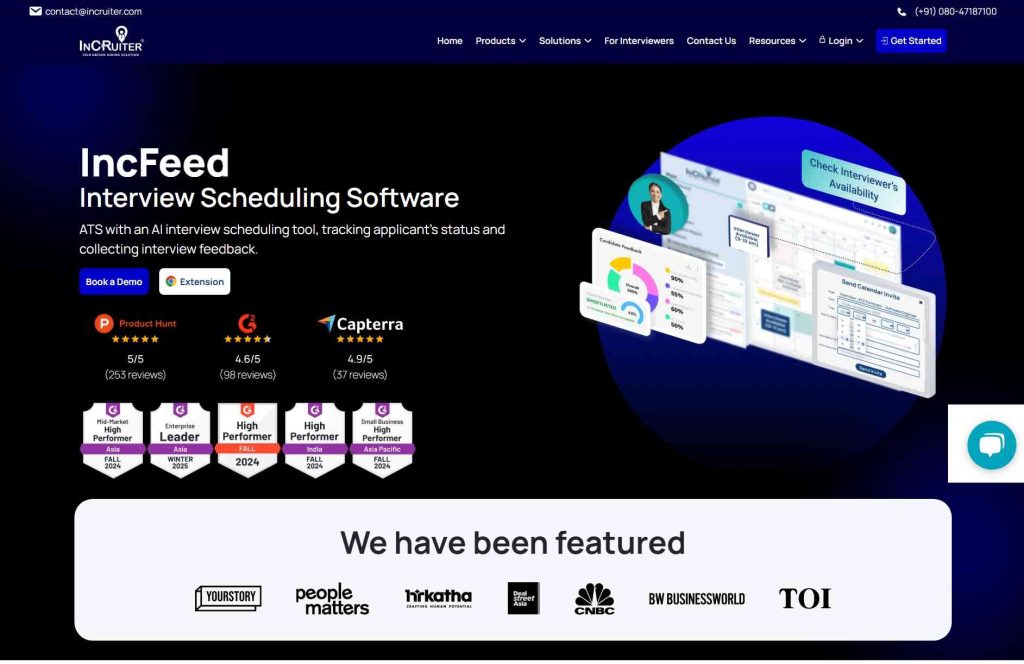
InCruiter’s hi-tech interview management platform is designed to simplify complex hiring workflows for fast-scaling businesses. Automated interview scheduling, panel coordination, and real-time feedback capture help recruiters streamline interviews, eliminating the need to chase calls or emails. InCruiter’s Interview Intelligence Platform is built for both volume hiring and niche roles, making it ideal for startups, enterprises, and staffing firms alike. From panel mapping to candidate reminders, every feature is crafted to deliver speed, structure, and a premium candidate experience.
Key Highlights
- Automated Interview Scheduling
- Email, WhatsApp, and IVR reminders
- Intuitive Analytical Dashboard
- Applicant Tracking System Integration
- Specialized video interview platform
- Self-scheduling candidate links
- Job Posting in Social Platform
Calendly
Calendly is a simple yet effective scheduling automation tool trusted by recruiters for managing interview timelines with ease. While it is not built specifically for recruitment, its integration capabilities and customizable workflows make it a valuable tool for organizing candidate interviews, especially in early-stage or high-volume hiring. Its strength lies in minimizing back-and-forth communication through self-scheduling links, making it ideal for fast-moving roles and distributed teams.
GoodTime
GoodTime is a purpose-built interview management system designed to optimize coordination for high-growth companies. It intelligently matches candidates with the right interviewers, automates panel assignment, and supports structured interview workflows. With built-in support for interviewer training, DEI analytics, and pipeline health tracking, GoodTime is ideal for enterprises that need scalable, data-driven interview logistics across global teams.
HireVue
HireVue is a robust enterprise-grade interview management system known for its AI-powered video interviewing capabilities. It supports asynchronous video interviews, live interviews, game-based assessments, and structured scoring systems. HireVue is suited for organizations that prioritize speed, consistency, and automation in screening. Its AI features help filter large applicant volumes, making it a strong choice for high-volume recruiters across industries like finance, healthcare, and retail.
Zoho
Zoho Recruit offers a comprehensive ATS with built-in interview scheduling and panel coordination features. It supports collaborative hiring by enabling recruiters to plan interviews, collect structured feedback, and maintain candidate records from a single dashboard. With interview management software, custom workflows, reporting tools, and job board integrations, Zoho Recruit is ideal for mid-sized businesses looking for an all-in-one recruitment solution that includes an interview management system as a core function.
Frequently Asked Questions
What makes interview management different from regular scheduling tools?
Interview management systems are designed specifically for hiring workflows. They do more than just book time slots. These interview management software handles multi-stage interviews, panel coordination, candidate communication, and real-time feedback collection. Unlike basic calendars, they offer structured workflows tailored for recruitment, ensuring the Recruitment process is fast, transparent, and aligned with hiring goals across departments.
Can small businesses benefit from these tools?
Yes, small businesses gain significant value from interview management software. It reduces manual effort, avoids scheduling errors, and ensures a professional experience for candidates. Even with limited HR staff, these platforms make it easier to manage multiple roles and track interview progress. Many providers also offer flexible pricing plans suited for growing teams with smaller hiring volumes.
How secure is interview management software?
Most interview management systems follow strict security protocols to protect candidate and company data. They use encryption for data storage and transfer, along with role-based access controls. Reliable platforms comply with global privacy regulations such as GDPR. This ensures sensitive information like resumes, evaluations, and interview notes remain protected throughout the recruitment process.
How much do these platforms typically cost?
The interview management system cost varies based on features, user count, and company size. Entry-level plans may start at a few thousand per month, while enterprise-grade systems can be priced higher. Some platforms offer pay-per-use models or bundled packages with ATS features. Most providers also offer demos or trial versions so teams can test before committing.
Can these tools handle bulk interview drives?
Yes, many online interview management systems are built to support bulk hiring. They offer batch scheduling, group invites, automated reminders, and centralized feedback collection. These features are especially useful during campus hiring, walk-in drives, or seasonal hiring spikes. The system ensures interviews are well-coordinated and no candidate is missed, even during high-volume periods.
Ready to Transform Your Hiring Process?
Discover how our AI-powered interview platform can streamline your recruitment and find the best candidates faster.

